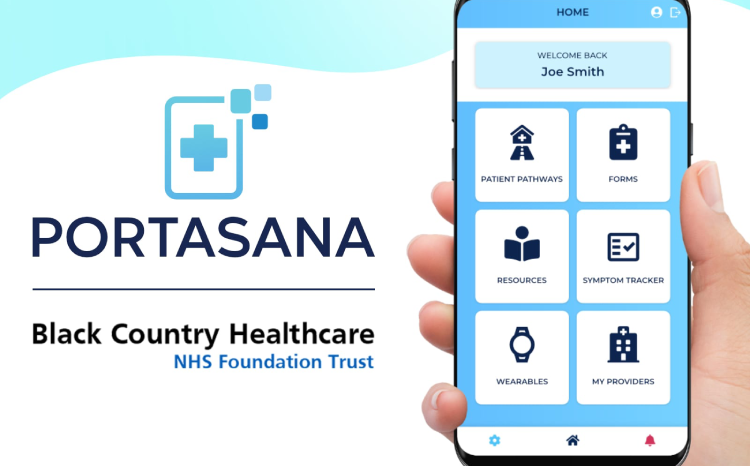Why the NHS needs to use digital to redesign care around patients
- 15 July 2024

Andrew Hine, MD of CereCore International, a healthcare IT application support and EPR consulting firm, speaks to Digital Health’s Jon Hoeksma about trends in the UK healthcare IT market and how it is working with NHS clients
While much attention is paid to procurement of electronic patient records, there is less focus on services related to implementation and optimisation after go-live. Yet these services are essential to ensuring that NHS organisations, staff and patients see the full benefits of critical digital investments.
Andrew Hine is a health veteran with a career spanning NHS senior roles in Wales (his mother was the former chief medical officer for Wales) and University Hospital Birmingham. He went on to re-establish KPMG’s health consulting business, then joined Ernst and Young in the Middle East, followed by a spell at virtual health specialist Babylon.
Describing the current market, Hine says: “The NHS is in as acute period of difficulty as has been in my career. Waiting lists and underfunding are as bad as they have been since 1997.”
He says there are also severe stresses in staffing and beds per head of population. On most of these key measures, the NHS is below other countries.
“Technology offers the multiplier,” he argues, “but to date, we have just fundamentally under-invested in tech to enable us to deliver care better, more safely and more productively.”
Major productivity challenge
Hine says that the UK as a whole, and the NHS in particular, has a major productivity challenge. “In healthcare, it is investment in digitisation in many forms that enables productivity improvement.
“We’ve got to come up with a much cleverer way to do that using digital,” argues Hine. “Nobody should be waiting for cavalry [to turn up] with more money.”
Asked to identify how technology can help improve productivity, he says the key challenge is to fundamentally redesign healthcare, so it places the patient and not the institution at the centre of care.
“In the UK, we are still basically delivering care through a late twentieth century model. Medicine has obviously developed in leaps and bounds, but the basic model that patient feels unwell, goes to their GP and is then referred to somewhere else remains the same. At heart, the patient is still moving through an institutional model. That is very last century.”
“We have iterated and improved that model many times but not changed the fundamental model.”
Drawing on his international experience, Hine says that other countries have developed their healthcare systems to move away from an institutional model. “Korea, UAE and Estonia, for instance, have all put digital health solutions at the centre of the healthcare systems and built care around the patient.”
Enable people to care for themselves
The key shift that digital enables, Hine argues, is to move the loci and responsibility of healthcare systems onto the patient.
“Put simply, we have an unproductive and quite costly healthcare system because we don’t make use of the patient and their capacity to care for themselves. So, we need to give people much more ability to be aware of and maintain their own health. Many of us already carry smart phones, powerful devices that enable us to do this.”
Hine says that the potential and need for health system redesign have been recognised in the UK for some time, and there are many pockets of progress, but relatively little has been achieved yet at scale compared to some other countries.
The key starting point is using technology to monitor and virtually care for people at home. “The normal model today is to take the patient from home to healthcare institution, but [we can] use tech to enable people and carers to look after patients at home.”
The exemplar of virtual care is video consultations. “The purpose of healthcare is to support, advise, and encourage patients to care for themselves.”
“This is something that other industries have done comprehensively. ATMs and online banking were done to shift workload onto the customer,” says Hine.
However, achieving this type of systemic transformation requires both clear policy leadership and significant upfront investment.
Stop expecting cost savings
“There is no escaping that the switching costs are high in the short term,” says Hine. “Private industry has been better at absorbing upfront costs to achieve downstream benefits.”
And as a result, industries outside healthcare are now seeing significant productivity and quality benefits as a result of digital transformation that are not yet being seen in healthcare.
But digital should not be seen as a panacea that will lead to cost savings in healthcare, warns Hine. “Anyone who thinks investment in tech [means] we will see reduction in costs is wrong, but where it has potential [is] to bend the curve and get more out of healthcare systems.”
He adds, “We are already getting significant productivity gains in some places, but much of this is hidden by increasing complexity of caseload: people coming into hospital have co-morbidities.”
CereCore started life as the enterprise implementation department of HCA Healthcare, a leading provider of US healthcare services with 188 hospitals and approximately 2,400 sites of care. In 2008, CereCore spun out as a wholly owned subsidiary and in late 2022 expanded digital health services with the launch of CereCore International. Today, the global company supports over 400 hospitals and 4,000 care settings and employs a team of approximately 1,000 US and in country experts.
In the NHS and UK independent health sector, where it counts HCA as a client, the company is best known for EPR implementation and optimisation, as well as technical staffing augmentation.
“The core of our work is in EPR implementation, where we work with the NHS alongside vendors like MEDITECH, Epic and Oracle Health (Cerner) pre and post go-live, advising people and supporting front-line staff,” explains Hine.
A growing demand from the NHS is for optimisation post go-live, ensuring they get the most out of their biggest digital investments.
Invest in optimisation
“Wise organisations are investing in optimisation, which requires staff, and particularly clinicians, to work differently, which isn’t easy. If an organisation implements an EPR and only uses 10% of capability it’s letting down the organisation, patients, and staff.
“Optimisation is about investing the time and effort in learning how to use it, practising how to use it, and ultimately, becoming an expert in it,” says Hine.
He says NHS organisations need help to understand how they can benefit from the national Federated Data Platform investment, by linking their EPR data to primary and community settings and developing meaningful population health management.
Cyber security is emerging as another area where healthcare providers are seeking help, says the CereCore International MD. “We have seen cyber attacks, such as that in London, shutting down whole systems, and ransomware rather than fraud being the main driver.”
But, the core of CereCore International remains providing teams with the deep expertise that help ensure organisations achieve successful EPR and EHR programmes, which can be delivered onshore or remotely.
“The CereCore International name is still relatively new to the NHS, but we are very large and highly capable. We have access to hundreds and hundreds of people if we need them, spanning a huge range of technical skills and experience,” concludes Hine.




